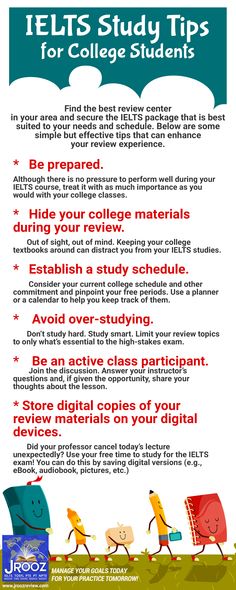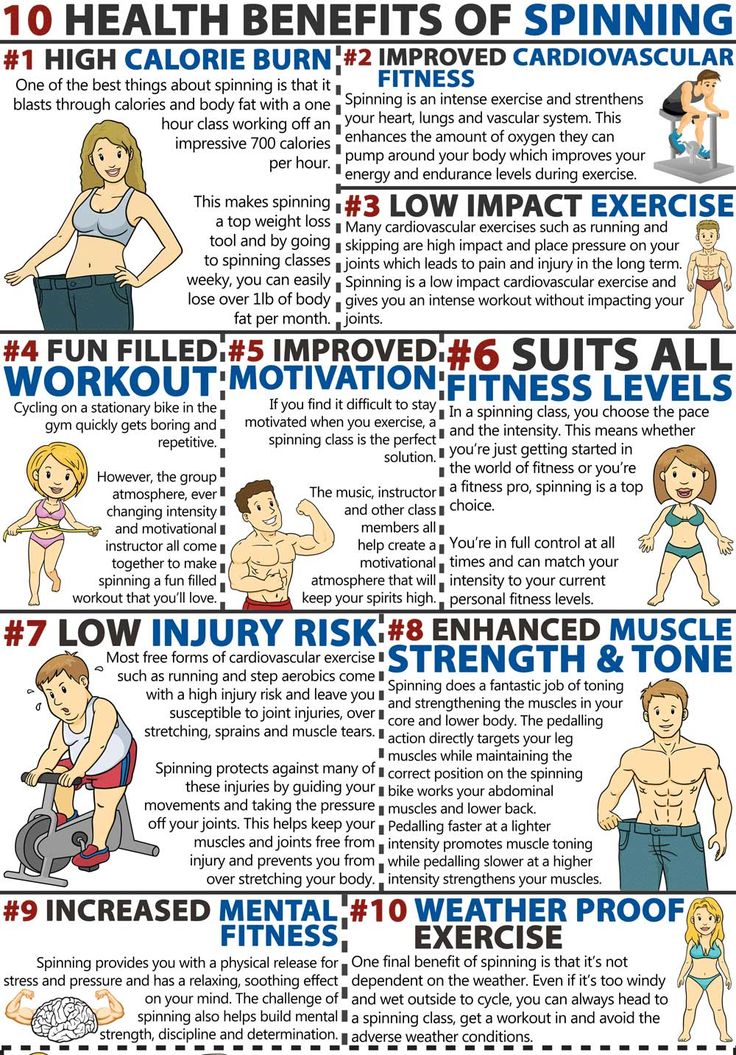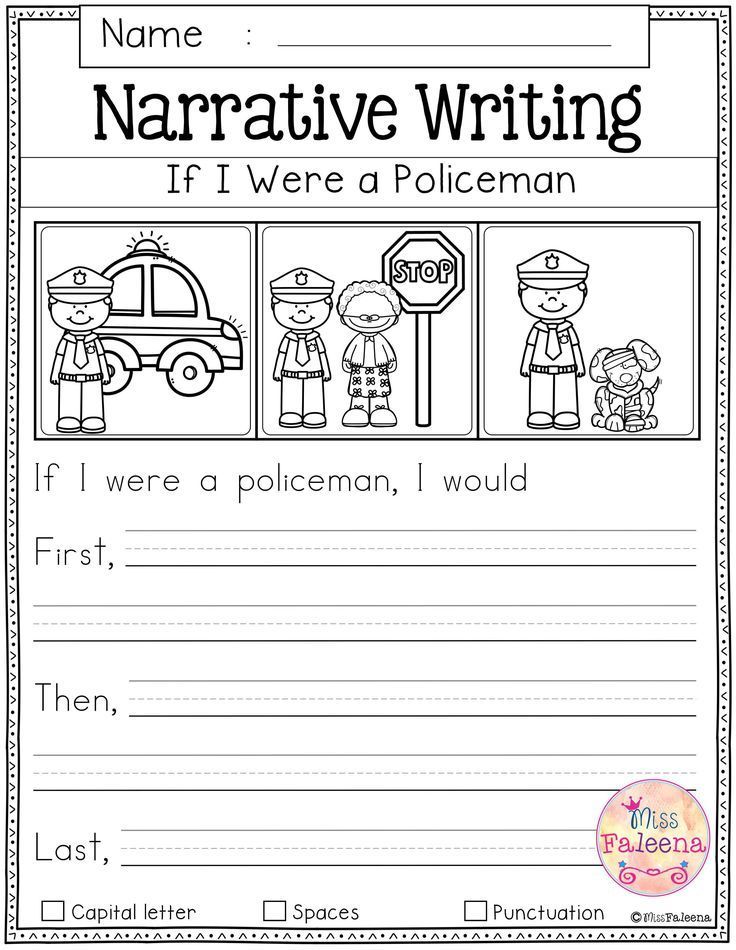Study tips for add college students
Strategies/Techniques for ADHD | Disability Resources & Educational Services
Breadcrumbs
Home → Knowledge Center → Strategies → Strategies/Techniques for ADHD
Compiled by Kim Collins, Ph.D.
- Study Skills
- Organizational Skills
- Time Management Skills
- Course/Assignment Strategies
- Test Preparation Strategies
- Structure
- Procrastination
Study Skills
- Plan for longer study time.
- Find a quiet space that is used for studying only.
- Develop a regular routine.
- Take frequent breaks.
- Keep up with work and do not wait until the last minute to study.
- Allow extra time for writing assignments to includes editing & rewriting.
- Use tutors when necessary.
- Highlight or color code important information in text and notes.
- Rewrite notes.
- Test self on information studied, including making up practice essay questions.
- Use active reading techniques—read headings before reading chapter, skim chapter to see what comes next, takes notes while reading, make up questions using chapter headings, practice answering these questions while reading, review major points.
- Use a laptop computer to take class notes.
- Space studying throughout the day into one hour sessions rather than having to spend 3-4 hours in the evening.
- Find your prime study time when you are most attentive and at your best.
- Figure at what type of environment is best, white noise versus absolute quiet.
- Figure out if you study better alone so you won’t get off track talking to others or if you need others around to make studying more interesting and help you stay on track.
- Review notes as soon after class as possible, filling in any gaps, and helping to remember the information, then review notes prior to the next class.
- Use the SQ4R method, Survey Question Read, Rite (write) Recite Review-survey sections by looking over the main headings, make up questions, read the entire sections, rite answers to the questions, recite the information out loud if possible, and review your work.

- Use movement (reading, underlining, writing in margins, highlighting , stimulation, and conversation(reciting information out loud), to stay alert while studying.
Back to top
Organizational Skills
- Keep desk clear of mess.
- Use folders/binders to organize class notes and study notes.
- Leave margins when taking notes to add information from the text.
- Keep track of books and other supplies.
- Get books and articles from library before you sit down to write.
- Clear/straighten desk at the end of every day.
Back to top
Time Management Skills
- Start each day with a list of what needs to be done and prioritize your goals, for example buying socks does not have the same importance as completing your assignment that is due in class that day.
- Do not procrastinate.
- Finish “to do” list each day.
- Do not overbook or overschedule.
- Allow extra time for assignments, readings, and studying.

- Organize time with space for breaks, rest, exercise, social time, and meals.
- Use a daily planner to write down all important tasks/activities for the day.
- Stick to the plan and avoid temptations of distracting activities.
- Be realistic about how long things will take and block off study time, lab work, library research, and writing time in daily planner.
- Build in extra room in case things take longer than planned.
- Break down large tasks into small components and put these in planner. A large task may feel overwhelming however, when it is broken down into small parts each component is quite manageable.
- For paperwork use the O.H.I.O principle - Only Handle It Once. When you receive a document try to respond on the spot, throw it away, or file it permanently.
- Do not use a “To Do” box. For people with ADHD, these become Never Done piles.
- Use an appointment book with a semester at a glance, month at glance, and week at a glance features.

- Get into the habit of carrying a pda (personal data assistant) or daytimes and writing things down frequently. The more you use the reminder, the more you will come to rely on it. Check entries in you reminder each morning before you start your day and throughout the day.
Back to top
Course/Assignment Strategies
- Develop a relationship with each professor and discuss needs.
- See professor immediately if anything was missed in class.
- Take a break between classes to get a snack, walk around, sit and relax for a moment.
- Try to schedule classed carefully to allow enough time to get from one part of the campus to another.
- Alternate between harder/easier or challenging/less challenging courses and spread class load over 2-3 days (M, W, F are heavy but T, Thu are light) to allow for study and writing time.
- Plan big papers in advance to allow time to meet with professor to discuss topic, do library research, editing, rewriting, and organization, and use of several drafts.

Back to top
Test Preparation Strategies
- Review information frequently—this is the only way information is stored in long-term memory.
- Understand information rather than just rote memorization.
Back to top
Structure
- Frequent use of lists and notes to self.
- Color code (e.g., files, texts, schedules).
- Consistent use of routines and rituals.
- Reminders.
- Computer software program that assists in managing time.
- Use of calendar, computers, phones.
Back to top
Procrastination
- Stick to your daily plan.
- Do things that were put off from the day before.
- Tackle tough assignments early.
- Pick interesting paper assignment to avoid boredom.
- Evaluate choice of major and seek help from advisor or career center.
- Learn what motivates you.
- Work before play.
- Use little rewards throughout the day (e.g.
 , soda break, snacks, telephone calls, visiting a friend).
, soda break, snacks, telephone calls, visiting a friend). - Time breaks to avoid letting a 10-15 minute break turn into 30-45 minutes.
- Avoid the TV when studying; use this as a reward for finishing or plan studying around a tv break.
- Give bigger rewards for getting a paper done (e.g., weekend away from campus, game away from home).
Back to top
How To Study Online With ADHD
ADHD can cause students to wander off task, overlook details, or forget important information. If you have or believe you might have ADHD, then you know what a struggle it can be to study, submit assignments on time, and pay attention to lectures.
ADHD is a cognitive disorder that affects one's ability to focus, listen, or sit still — essentially, it interferes with executive function. This can be especially challenging for students, particularly in an online environment. Fortunately, ADHD students can take steps to help themselves succeed in their studies by accessing school resources and mitigating potential barriers to learning.
Executive Functioning Skills Needed for College
Executive functioning skills are essential to navigating the classroom and the social arena in college. To do well in your courses, you must be able to draw upon functional memory, focus, and observation to process and synthesize information from lectures and readings. To complete assignments and keep on schedule, you need time management, organizational, and goal-defining skills. All of these skills fall under executive function.
Executive functioning carries over into social settings, too. To effectively network and form valuable relationships, you need emotion control, observation skills, and self-awareness.
DISCLAIMER
The following is intended as an information resource only; we are not a medical organization and we cannot give medical advice. If you are experiencing a life-threatening situation, seek medical help or dial 911. If you believe you may have ADHD, seek a professional diagnosis, as a diagnosis is often required to access student accommodations on campus.
How Can I Study Online With ADHD?
A study from 2021 suggests that proper accommodations and well-developed study skills helped ADHD students attain higher GPAs in college. With access to the proper support services and careful attention to developing good study habits, students with ADHD can succeed in higher education — including online education.
If you struggle with ADHD, the following tips may be able to help you sharpen your study skills and access the support you need to succeed in college.
—
Tips for Better Time Management
One fundamental skill every student needs is time management. Good time management skills will allow you to prepare adequately for tests, turn work in on time, and get a proper night's sleep every day.
Here are some steps you can take to manage your time effectively.
1. Build and Keep a Routine
Lay a foundation for time management skills by building and keeping a routine. Start by setting basic guidelines, such as:
Start by setting basic guidelines, such as:
- When to wake up on a typical school day
- When to exercise on a typical school day
- How much work to accomplish before calling it a day
- How late to socialize on a school night
However, it's good to be flexible when building routines. Too much rigidness can dissuade you from maintaining your routine or leave you feeling defeated after missing a deadline. The goal is to create a structure that helps you live — not one that runs your life.
2. Sleep and Study on Your Ideal Schedule
Another important aspect of time management is managing your sleep schedule. Sleep deprivation negatively affects concentration, memory, and mood. Common symptoms of sleep deprivation include:
- Yawning
- Excessive sleepiness
- Irritability
If you're showing symptoms of sleep deprivation, you may need to adjust your sleep schedule. You can do this by taking steps like these:
You can do this by taking steps like these:
- Choose a consistent bedtime
- Skip naps
- Eat earlier in the day
While you may feel tempted to pull all-nighters, specially when you're on a study deadline, the truth is that getting better sleep on a regular schedule improves your executive function and, in turn, your ability to study effectively.
3. Build in Breaks
People with ADHD often struggle with sustaining mental effort for long periods of time, so you may find it useful to build breaks into your study sessions. There are several popular productivity techniques that incorporate frequent break intervals, including:
- Pomodoro Technique
- Flowtime
- Action Method
The Pomodoro Technique, for example, includes identifying a task, working on it for 25 minutes, and then taking a 5-minute break to recharge before returning to focused work. Every four cycles, you take a longer break — about 15-30 minutes.
Every four cycles, you take a longer break — about 15-30 minutes.
Remember that there is no one right way to use breaks when getting work done! So long as the strategy is helping you work effectively, that is enough.
4. Request Extensions for Quizzes, Exams, and Assignments
Problems with executive functioning can make it harder for a student with ADHD to complete assignments within the time allotted. Thus, students with ADHD may need an extra day to complete an open book online quiz, or an extra half hour for that pop quiz.
ADHD is a learning disability, so you have the right to request reasonable extensions for quizzes, exams, and assignments. Most professors will honor your request as long as you explain your needs in advance and be specific. Alert your professor at the start of the semester about any accommodation requests, well before assignments are due.
Being proactive with your requests ensures that you and your professor are on the same page and demonstrates that you take coursework seriously.
—
Tips for Reducing Distractions
While you may find wearing earbuds or playing with a fidget spinner helpful while studying or listening to a lecture, you might also benefit by minimizing distractions. The following tips can help you reduce distractions that don't help you focus.
5. Read Tests (and Assignments) Aloud — or Have Them Read to You
Some students benefit from reading course materials aloud. This helps them stay focused on the material and offers practical benefits, including:
- Greater comprehension
- Improved listening and reading skills
- Sharpened focus
For some students, having the content read aloud by someone else is even more helpful. Getting another person involved can motivate you to pay closer attention, making it easier to concentrate and absorb the information. Consider using a machine reader or asking a friend or roommate to read tests or assignments aloud to you.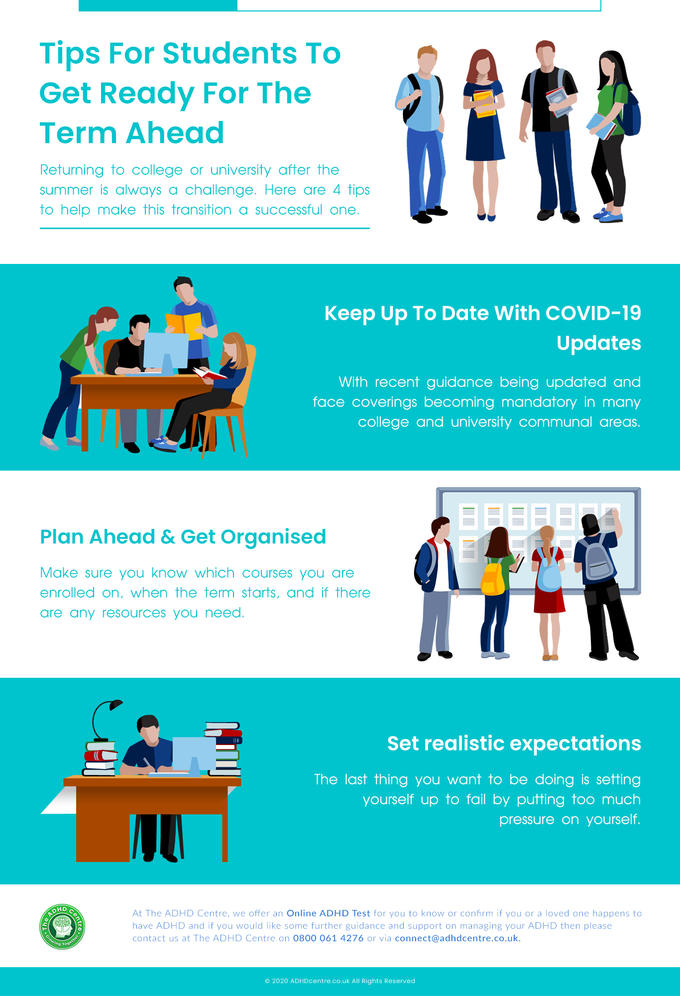 Many textbooks are available as an e-book and have a "read aloud" option or built-in note-taking strategies.
Many textbooks are available as an e-book and have a "read aloud" option or built-in note-taking strategies.
6. Determine if You Learn Best Alone or With Others — And Choose Classes Accordingly
If you are an online student, you can reduce distractions by choosing your classroom format carefully.
Synchronous classes, which require you to sign in at specific times and attend live video lectures, may create a sense of focus for you — or they may offer opportunities for distraction. Figure out whether working with and attending lectures alongside other people distracts you from the content of a lecture or lesson, and choose your class format accordingly.
Students who are easily distracted by others and prefer to work alone should register for classes in an asynchronous format, which allows students to work at their own pace and on their own schedules.
7. Use Closed Captions
Students with ADHD can often benefit from captioning services, whether lectures are online or in person. Closed captions can reduce distractions and make the content of a lecture easier to process: Hearing and reading content simultaneously helps the information sink in better. Captioning resources students can use include:
Closed captions can reduce distractions and make the content of a lecture easier to process: Hearing and reading content simultaneously helps the information sink in better. Captioning resources students can use include:
- Zoom closed captions for Zoom rooms in synchronous online classes
- Closed captioning services for asynchronous video resources in online classes
- Live captioning services for in-person classes
You will likely need to request captioning resources from your school, and they often come through third-party captioning services. In some cases, your professor can simply turn on Zoom captions or closed captions on recorded videos upon request.
8. Find a Quiet Space to Work
Another important step in removing distractions is finding a quiet space to work. A quiet environment allows you to focus on work, without clutter or activities that might cause your mind to wander. For online students, this means taking your laptop to a favored spot where you can expect people to be working, studying, or quietly relaxing. This could include:
This could include:
- Your university's library or a local library
- A museum
- A quiet coffee shop
- A park with quiet areas
For in-person students, this could also include your university's disability services office. If you're studying from home, find a room away from other people, and try to keep the space clean to minimize distractions.
—
Tips for Building and Leveraging Your Network to Help You Study
Student success stories are often built on the support networks that surround them. If you want to do well in your classes and beyond, you should take advantage of the resources provided by your school, and you should build and leverage a study network support system.
9. Connect With Disability Services and Communicate Your Needs
Working with ADHD becomes easier when you build a relationship with disability services and your instructors. If you create a transparent relationship with professors, they will want to help you. For instance, telling your professor about your ADHD diagnosis might lead to them integrating a third-party captioning service in their lectures.
If you create a transparent relationship with professors, they will want to help you. For instance, telling your professor about your ADHD diagnosis might lead to them integrating a third-party captioning service in their lectures.
Similarly, disability services can help you find quiet spots for studying, access tutors, and attend social events where you can meet new people.
10. Take Advantage of Your School's Resources
Your school likely offers a bevy of resources to help students with ADHD and executive function disorders. These resources can include:
- Disability services
- Tutoring centers
- Writing centers
- Counseling centers
Keep in mind that support from your school is not limited to class meetings and exams. For instance, your school's counseling center can help you work through personal issues that are straining your executive function or help you get a referral to medical providers, who can ensure you receive the appropriate attention, treatment, and support.
Most of all, remember that your school administrators and professors are there to help you succeed, but they can only help you if they know what you need.
Frequently Asked Questions
Is ADHD Considered a Disability for College?
Because it impacts cognitive function, ADHD is considered a learning disability. As a result, you can expect reasonable accommodation for it at colleges and universities.
How Do You Get Through College With ADHD?
College and ADHD can be a challenging mix. However, if you utilize disability services, ask for reasonable accommodations, and build up your study skills, you can thrive.
Is Online School Good for Students With ADHD?
Online school can play to your strengths if you have ADHD. Online courses allow students to re-watch lectures, utilize closed captions, and self-select (or supplement) teaching materials that better serve their learning needs. Moreover, online students can use their preferred methods for note- and test-taking, and the reduced stress of a flexible schedule can help with executive function.
Moreover, online students can use their preferred methods for note- and test-taking, and the reduced stress of a flexible schedule can help with executive function.
Matthew Sweeney
Matthew Sweeney received his Bachelor of Arts in English with a specialization in English literature from Portland State. His writings on music and culture have appeared in the publications Eleven PDX Magazine and Secret Decoder. In his free time he enjoys reading, cinema, hiking, and cooking.
Reviewed by: Rayelle Davis, M.S Ed., NCC, LCPC
Rayelle Davis is a nationally board certified counselor and a licensed clinical professional counselor. As a nontraditional student, she earned her associate degree in psychology at Allegany College of Maryland. She went on to earn her bachelor's degree in psychology online at the University of Maryland Global Campus. Davis earned her master's degree in counseling education with a concentration in marriage, couples, and family therapy from Duquesne University. Davis has taught several undergraduate psychology courses. She is currently a doctoral student and teaching assistant at Duquesne University and practices psychotherapy in Maryland.
Davis has taught several undergraduate psychology courses. She is currently a doctoral student and teaching assistant at Duquesne University and practices psychotherapy in Maryland.
Header Image Credit: PeopleImages | Getty Images
Learn more, do more.
More topic-relevant resources to expand your knowledge.
15 effective study tips for students | 2022
In this article, you will find effective study tips for students.
College is an educational institution that prepares students to become leaders, innovators, creators, and thinkers capable of making a positive impact on society and the nation as a whole. The college equips students with the knowledge and skills they need to create something of value.
How then can a student graduate from college without a curriculum? How does the student balance social activities and learning without getting distracted or failing?
Thus, teaching advice is needed for the correct development of the curriculum.
Many students study but still have a hard time passing exams, in this case something is wrong.
This category of students does not understand something or, perhaps, does not do enough to achieve the goal, which is perfection.
Take a look at the content below.
Why go to college?
There are various reasons to go to college, some students just want to be considered graduates, while others really want to build a career.
However, according to the NC Plan for College, there are 8 reasons students go to college;
- Earn more money
- Tear out your shell
- Get new skills
- Find your direction
- Live a healthier and happy life
- Expand the capabilities of your career
- See the world
- to join 9003 reason, students have one similar goal - to graduate with outstanding results.
- ncplanformollege.org/
- post.edu/
- gomerry.com
- USA.EDU/
- CSC.EDU/
-
- CLAS MEDICAL SCHOOLS
- Work-Study: Tips on how to work and study in Australia
- 10+ reasons why international students study in the Philippines | 2022
- A university is not a school . Everything is different here: parents are no longer responsible for you and your academic performance. Now you and only you are responsible for everything that happens in your life. But for the same reason, you can become a completely different person. Leave all previous fears and complexes outside the school threshold.

- Start thinking about work from the first days of the first course . The sooner you start working on your portfolio, the more likely you are to get a good job quickly after graduation. Get a solid email, create a resume and set a goal to add one significant item to it every year: a new level of a foreign language, a new professional and personal skill, etc. Attend any seminars and conferences, and immediately attach certificates to your CV. All this now is the best investment and experience for future employment.
- Form the right circle of acquaintances . Make friends from completely different circles: this way you will be more likely that at least one of them will achieve heights. And this is a good prospect for you. Moreover, in the case of close communication with classmates, it is they who will help you achieve heights in life, walking hand in hand with you and forming the right social circle.
- Find out the prospects of the university .
 Immediately after enrollment, find out what rights, benefits and opportunities you have, what additional programs / courses / electives / cooperation with foreign educational institutions are available at the university, student activities and events, associations. And as soon as you find out, be sure to join / enroll / participate, because in this way you will be able to solve several problems at once: make new acquaintances and be in good standing with the university management. Be sure to find out if your university offers internship opportunities.
Immediately after enrollment, find out what rights, benefits and opportunities you have, what additional programs / courses / electives / cooperation with foreign educational institutions are available at the university, student activities and events, associations. And as soon as you find out, be sure to join / enroll / participate, because in this way you will be able to solve several problems at once: make new acquaintances and be in good standing with the university management. Be sure to find out if your university offers internship opportunities. - Communicate as much as possible and with all . Be friendly. This contributes to socialization and the development of networking - qualities that are extremely important for future interviews.
- Set big goals for yourself . Firstly, the more incredible the goal is before you, the more heights you can conquer, even if you never reach the final goal. Secondly, in the future you will no longer be so bold and reckless as to dare risky steps.
 Therefore, now is the time to take risks, because you still have nothing to lose.
Therefore, now is the time to take risks, because you still have nothing to lose. - Separate from parents . Yes, this is a way out of the comfort zone, which we all do not want to lose. Only by separating from the parent nest can you scale and grow skyward.
- List companies in your industry . Study their requirements, corporate ethics and internal values. Now you can start a "crusade" to conquer them. Don't worry, you have at least 5 years to try, fail and try again! Don't be afraid to look pushy and stupid. Water wears away a stone, and successful people love persistent ones. The worst thing that will happen to you is that you will never get the job. But you can get it.
- If you have the opportunity to travel, do it . Trips will not only allow you to see the sights, but also expand your horizons, help you make new acquaintances, change your worldview, find new places and inspiration for self-realization, discoveries and perspectives.

- Trust yourself . If you have already studied several courses and still feel unwilling to study here and now, take your documents. As a rule, a year is enough to understand the direction in which you want to develop.
- Befriend the undergrads . Collect their lecture notes, seminar notes, cheat sheets, and even scientific papers. All this will be an excellent base for preparing for classes when you are on the same course as your more experienced friends. In their work, you can peep the design rules, structure and template phrases, and in fact any work consists of 80% of this. You will have to add the missing 20% for uniqueness. Agree, this is not at all like writing a term paper or a diploma on your own.
- Be kind to applicants and freshmen . Do not forget that you yourself were once just as young, "green" and shy. They need your help and support.
 And if you can’t help with deed, then help at least with advice.
And if you can’t help with deed, then help at least with advice. - Come up with your own system of symbols and designations . This will help you take notes several times faster. Yes, at first it will be difficult to navigate. You will be confused and confused, but soon you will gain the necessary pace and skill.
- Get ready for the session from the first day of the semester . You have already understood from the experience of the first year that starting to prepare for exams at the beginning of the session is a bad idea: there is little time, there is too much information to master, and the emotional state is shaken. So be smart and start learning the material as it comes.
- Connect with Difficult Teachers . Teachers don't take students seriously. They are ready for the fact that after the first two sessions the lion's share will be eliminated, so they will not make contact. But then they will look closely at everyone who is open and goes to dialogue, moves towards knowledge.
 This approach will be useful not only during the period of passing ordinary exams and tests, but also during the period of choosing a leader for term papers and diploma theses. At least it won't surprise you to collaborate with someone you don't know at all.
This approach will be useful not only during the period of passing ordinary exams and tests, but also during the period of choosing a leader for term papers and diploma theses. At least it won't surprise you to collaborate with someone you don't know at all. - Keep track of your attendance at . Do not exceed the allowed limit and check with each teacher for acceptable limits. This will avoid many problems during the period of passing tests and exams. Some principled lecturers do not give a good mark even for a perfect answer to a question, just because the student's attendance has been very limping. The absence of students is perceived as a personal insult and disrespect, and this is a source of problems.
- Work for grade . The first course was the most difficult, but it is over, and now you can exhale. But don't exhale too much, because it's time to start working on your gradebook. If you work hard, then in the last courses, the credit card will work for you.
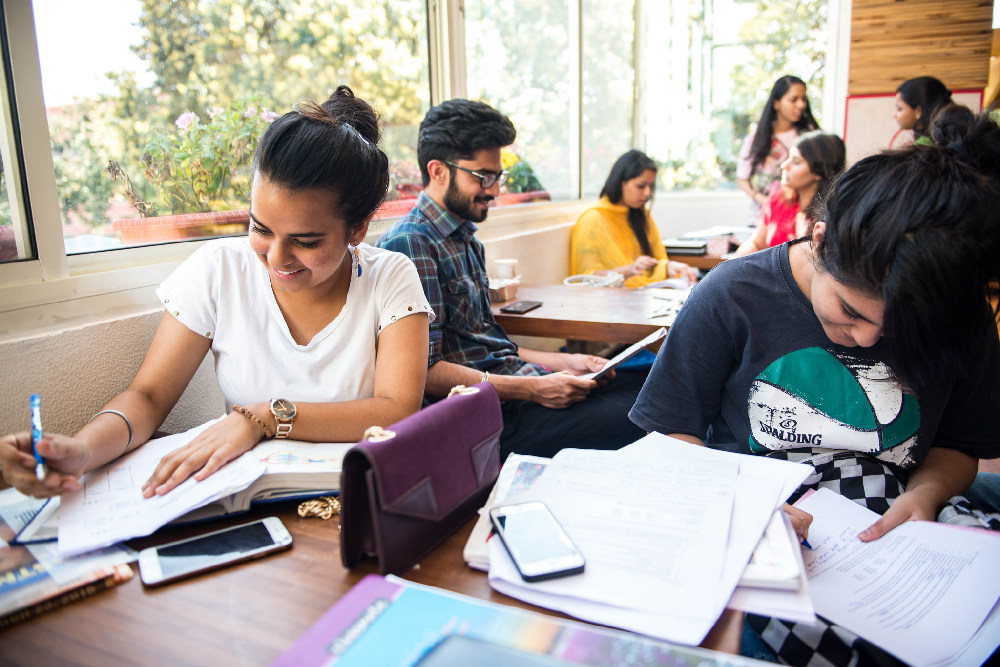 This means that even in the case of complete lack of preparation, the teacher will be able to make an exception / indulgence and give a normal grade simply because he does not want to spoil the overall statistics.
This means that even in the case of complete lack of preparation, the teacher will be able to make an exception / indulgence and give a normal grade simply because he does not want to spoil the overall statistics. - Find out in advance what you need to pass a particular exam . Some teachers allow the subject to be passed only if 3 essays are written, others - if there are no more than two passes, others put “automatic machines” on everyone who wrote 2 control papers for a good mark, the fourth developed his own scoring system, according to which you need to complete the whole quest . The more knowledgeable you are, the more likely you are to get into another course with minimal headache.
- Start exploring the area around . If you come from another city, it's time to get acquainted with the place where your university is located. Go to the cinema and to exhibitions, to theaters and museums, visit parks, explore all possible areas.

- Get enough sleep . So many sessions are already behind, and you should have understood for yourself: the better you rest, the better your brain will think. But this is especially important in the last year, when a student will have to pass state exams, and a standard session, and defend a diploma in one fell swoop, and for some - also work or look for a job. If you don’t get enough sleep, skip the first couple or party with a clear conscience, because a healthy nervous system and rest are a priority.
- Don't think long, just do what you need to do . By the fifth year, many students turn on laziness and indifference, but you still need to do what is supposed to be done.
 So turn off laziness and do what they ask.
So turn off laziness and do what they ask. - Start writing your thesis as early as possible . Ideally, even in the fourth year immediately after the course. In addition, the sooner you start writing your thesis, the less busy your supervisor will be. That is, he can easily tell where to fix something. And for the calm of the nervous system, always remember that you have a lot of time ahead, and if you wish, you can write a diploma even in a week.
- Filter out excess . Calmly go to classes, get ready for passing the state exams and defending your diploma, and everything else is in order of priority. Spend time only on what will be useful and necessary for you. It's time to learn to separate the wheat from the chaff and understand what actions are necessary and which ones can be abandoned without loss and harm to yourself. This will help save a lot of time.
- Start looking for a job . It's time to start actively monitoring the labor market.
 Include all your acquaintances and connections. Go to interviews as much as possible - this will help overcome natural shyness and learn how to avoid common rookie mistakes that prevent you from getting the coveted job. Let's make a reservation right away: forget about a decent salary in the first year of work. The main thing is to find a good place and gain a foothold in it.
Include all your acquaintances and connections. Go to interviews as much as possible - this will help overcome natural shyness and learn how to avoid common rookie mistakes that prevent you from getting the coveted job. Let's make a reservation right away: forget about a decent salary in the first year of work. The main thing is to find a good place and gain a foothold in it. - Learn to forget . 80-90% of the knowledge acquired at the university you will not need in your life. It would be nice to understand in time what are superfluous (for example, to draw contour maps or data on the history of the language, differential equations and logarithmic functions) in order to free your head for real skills and abilities. Most subjects at the university are taught not because of their importance in professional life, but to accustom you to independence, instill skills in finding information and working with large amounts of data.
- Train yourself in business attire .
 Statistics and research show that a business suit makes others think better of you, even if they don't know anything about you. A clean and tidy suit commands respect. Not bad, especially if you want to capture the attention of the interlocutor.
Statistics and research show that a business suit makes others think better of you, even if they don't know anything about you. A clean and tidy suit commands respect. Not bad, especially if you want to capture the attention of the interlocutor. - Practice Speaking . Sit in front of a mirror and talk to yourself. Practice smiling, speech without parasitic words, short pauses, natural open postures. All this will help to look advantageous in the eyes of others. And the ability to speak beautifully in public will help you out more than once in life.
- Feel free to change full-time education to part-time by the end of your studies . In fact, before the 4th year, you received everything that was possible from the university. And if you are also studying on a commercial basis or have found a good job, transfer without hesitation. Full-time students are kept in this form of study by the craving for active student life or the fear that part-time students are reluctant to take on work.
 In fact, the craving for entertainment and all kinds of activities is already greatly reduced by the 4th-5th year. And practice has shown that employers are paying less and less attention to the form of training and more and more to real knowledge and skills that are easy to test in a candidate.
In fact, the craving for entertainment and all kinds of activities is already greatly reduced by the 4th-5th year. And practice has shown that employers are paying less and less attention to the form of training and more and more to real knowledge and skills that are easy to test in a candidate. - Work on your self-esteem . Until you learn to love and respect yourself, none of those around you can either. It's good to have an objective view of your personality. But in any case, always consider your strengths and focus on them when solving the problems of the employer. The fact that you have no experience does not make you bad or unworthy - it is only a temporary feature that your employer once had. Therefore, be firm and confident in your abilities, because everything will work out for you.
You should definitely check this out. Tips on how to prepare for the final | College & High School
15 Powerful Tips for College Studies
1.
 Organization Is the Key to Success:
Organization Is the Key to Success: There is a common saying that "if you can't plan, you plan to fail." Thus, make sure you have a college planner.
It can be a creative planner, a regular notepad, a wall calendar or even a small desk calendar that changes every month.
A calendar is best for checking appointments, events, and due dates, while a planner notebook is best for scheduling on the go, wherever you are. This planner will keep you in control when you are in class or in a meeting with your advisor.
However, if a digital device suits you better, set the agenda on your mobile device.
You can set reminders for exam dates, departmental events, study times, and assignment deadlines.
2. Change your environment:
Changing your learning environment can help improve college performance. Imagine moving away from a noisy environment to study in a quiet environment, the best result is not far-fetched. This is because a diligent student tends to concentrate better and absorb information faster in such an environment.
Looking at the walls of your bedroom, you often find yourself in the arms of Netflix or Xbox. Instead, take your laptop or printed notes and find a quiet place to study.
One of the learning skills for college students involves getting out of the house and changing environments.
This is one of the effective teaching tips for students.
3. Group study:
Group study is great advice that works, but studying on your own before joining group study is more effective. This contributes to a better exchange of ideas or knowledge and an easy understanding of complex courses.
Group Learning is a learning tip that outstanding college students find really helpful in taking difficult or challenging courses.
Even if you cannot be with your classmates, you can choose to form an online study group. Find your colleagues online and set a specific time each week to meet online and quiz each other.
Use a free service like Facebook video chat, Zoom or Skype.
Another effective way to study with a friend or group of friends is to become an online tutor for someone who is in the same class.
This will force you to review the work frequently, reflect on the material, and participate in question and answer sessions.
If you want to attend nursing school, you must read this. 15 LEARNING TIPS FOR AN EASY TRANSITION TO NURSING SCHOOL
4. Create space for super learning:
What helps you focus while studying? Is it your favorite music, complete silence or snacks?
Find things to help you focus and create your own super learning space. Think outside the box to create a room that encourages you to learn.
This could mean tea or essential oils such as rosemary or ginseng to help you focus. This may mean bringing your favorite blanket or pillow for comfort.
You might have soothing music playing in the background, or your favorite band on autostart. You can keep a supply of brain food on hand, such as pumpkin seeds, dark chocolate, oranges, or almonds, to help you get through this.
5. Study before class:
If you study before class and make it a routine, it will help you remember topics that were previously discussed by your mentor or professor.
This will help you prepare better during your session, but there is another benefit.
Repeated listening to information will also help you remember better. If the lectures are live, record them so you can watch them again at the scheduled time.
Take notes during each lecture, and then spend half an hour afterwards to either retype them in a more coherent way, or write them down on a notepad so they're neater and easier to follow.
This is one of the effective teaching tips for students.
6. Prioritize your work:
Another effective study tip is to prioritize your work from most important to least important.
As a college student, use this to your advantage by devoting most of your class time to the activities that you find most challenging.
However, spend less time studying subjects that are easier.
7. Ask for help:
If you don't understand a concept or find a course difficult, ask for help. Meet outstanding students or the best in class, they can help you get through the tough part of your studies.
You can also visit your professors' office during office hours or send them an email.
Some classes may even have WhatsApp or Telegram groups set up to keep students engaged and asking questions outside of class.
8. Don't cram:
If you make your daily study routine, you won't need to cram before exams.
While it may seem like a good idea to learn the entire semester in one night, this is an inefficient learning habit as it causes a lot of unnecessary stress.
Instead of cramming, study a little bit of information every day for at least 30 minutes.
You are likely to remember more, feel calm and prepared when the exam period approaches.
This is one of the effective teaching tips for students.
9.
 Study smarter, not harder:
Study smarter, not harder: Sometimes college professors reveal information on topics that will or won't show up on the exam, take it seriously. They share this information to guide them as they prepare for exams.
With the advice given to you by your lecturer, which serves as an area of concentration during your studies, you can focus on the important points.
10. Take breaks while studying:
Reading for very long hours can be tiring and draining, which slows down the brain. Breaks during study increase productivity, reset and prevent burnout.
In addition, breaks can help you get the most out of your study time with the least amount of stress.
When you study hard, you will get better grades, which will help you work part-time in college. Learn about Part-time college student resume | Samples and writing tips
11. Get enough rest:
According to an article from ST. Augustine for Health Sciences, a recent study found a positive relationship between student grades and how much they sleep.
However, getting enough sleep is essential in preparing for outstanding exam performance. This does not necessarily mean that you need to sleep 8 hours, but a sufficient amount of rest is necessary for good brain function.
In addition, fatigue slows down effective absorption during study, so you need to get enough sleep before starting the main part of the study.
12. Equipping the study area with the necessary materials:
Your work desk should be equipped with all the materials you may need to complete the task, such as office supplies, paper clips, a stapler, a dictionary, snacks, liquid snacks, etc.
For some tasks, you may need a calculator or other supplies. With the materials at hand, you can study without interruption.
If you have an answering machine, have it do its job while you study. You can call back after you finish your training.
Taking snacks and drinks with you to class will save you from endless trips to the kitchen that can break your concentration.
This is one of the effective teaching tips for students.
13. Keep a record of tasks:
Write it down in writing, including details, and save it in your notebook. Knowing what you have to do and when you have to do it is the first giant step to successfully completing important tasks on time.
Also, pay attention to the questions given in the assignments, as this could be an exam question.
14. Learning by heart improves memory:
Psychologists tell us that the secret to learning for future use lies in overlearning. Experts suggest that after you can say, "I know this stuff," you should continue studying that material for another quarter of the original study time.
How did you learn this? Probably through recitation, which is the best way to imprint the material in a memory trace.
To better assimilate the learning material, it is better to manipulate the material in different ways: write, read, touch, hear and speak it.
In a pilot study, students who memorized material in a month memorized four times as much material as students who did not memorize.
For better study, you will take notes in class. Learn How T0 to take study notes for class
15. Examine yourself:
After studying, it is important to examine yourself to determine your level of assimilation. Therefore, after reading, prepare possible test or examination questions, then set a time and test yourself.
This is effective learning advice that will ensure outstanding academic performance. It is not enough just to study, it is also important to test yourself and determine how ready you are for the upcoming exam.
In fact, doing a series of tests builds confidence before an exam.
This is one of the effective teaching tips for students.
Recommendations
10 useful tips for students and almost students: applicants, freshmen and graduates
Forewarned is forearmed. Therefore, we read our useful and cool tips for students in their studies, delve into and take note.
Therefore, we read our useful and cool tips for students in their studies, delve into and take note.
Our task (as well as our telegram channel) is to give you all the information that will help to minimize failures. Therefore, we have collected advice, recommendations and experience from psychologists, graduates and just smart people who will help warn and protect against mistakes.
Useful advice for first-year students
For those who are just entering the university, it is better to listen to the advice of experienced students. This will help to avoid many problems in the future:
Advice for intermediate students
Tips for graduates
Have you reached the finish line? Congratulations! But it's too early to relax. Here are tips from those who have already crossed this line and want to reduce your suffering and reduce the likelihood of mistakes.
As you can see, the list is impressive. And what to do - after all, the student really has a long and interesting life path. And it would be nice if he had such a wise adviser nearby, able to give instructions on any life situation.